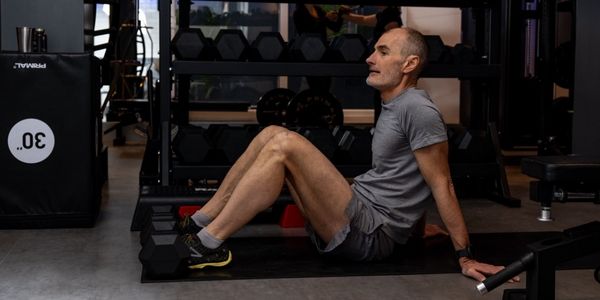Your heart is the engine that drives everything else in your body. Yet for many people, it only becomes a focus after something goes wrong — a diagnosis of high blood pressure, a warning about cholesterol, or even a cardiac event.
At that point, fitness can feel intimidating. Is it safe? Where do you start? Is it possible to overdo it?
The truth is, exercise is one of the most effective tools we have for protecting and rebuilding heart health. Done safely and with the right guidance, it reduces risk, aids recovery, and gives you confidence that your heart — and your body — can carry you into the future with strength.
Why Exercise Is Essential for Heart Health
Cardiovascular disease is still the leading cause of death worldwide. But many of its major risk factors — high blood pressure, obesity, poor circulation, sedentary living — are directly improved by physical activity.

Structured exercise strengthens the heart muscle itself, improves circulation, helps regulate weight, and lowers stress hormones that strain the cardiovascular system. Whether you’re working to prevent problems or recovering after an event, the right kind of movement is medicine.
That’s why the next question isn’t if exercise helps, but what the science says about just how powerful it can be.
What the Research Tells Us
The evidence for exercise and cardiac health is overwhelming. Study after study points to the same conclusion: regular movement changes outcomes, whether you’re aiming to prevent issues or recover from them.
- Blood pressure: Regular training can lower systolic blood pressure by 5–7 mmHg on average, according to the British Heart Foundation. That’s enough to meaningfully reduce long-term risk.
- Cholesterol: Both resistance and aerobic training raise HDL (“good” cholesterol) and reduce LDL (“bad” cholesterol).
- Risk reduction: A large study in Circulation found that people who exercise regularly cut their risk of heart disease and stroke by up to 35%.
- Rehabilitation: Cardiac rehab programmes — combining exercise with lifestyle support — are proven to reduce the likelihood of a second event and improve quality of life for those recovering from surgery or a heart attack.
The takeaway is clear: movement works. For prevention, for recovery, and for building resilience you can rely on.
Why Strength Training Deserves a Place
When most people think of “heart exercise,” they picture cardio — walking, cycling, swimming. These are valuable, but they’re only part of the picture. Strength training plays a crucial role too.
By building lean muscle, strength training makes your body more efficient at using glucose, helps regulate weight, and lowers blood pressure. It also improves posture, mobility, and stamina — so you can stay active and independent.

Most importantly, strength training is highly adaptable. With the right plan, you can build resilience gradually, without overexerting your heart. For many people, two or three structured strength sessions each week deliver far more benefit than endless hours of cardio.
Combined with moderate aerobic work, this balanced approach is one of the safest and most effective ways to protect and rebuild cardiac health.
Everyday Benefits You’ll Notice
Improving heart health isn’t just about numbers on a chart. The difference shows up in daily life — and it often happens sooner than people expect.
You might notice:
- Climbing stairs or walking longer distances without feeling breathless.
- Rebuilding stamina after surgery or a health scare.
- Sleeping better and waking with more energy.
- Feeling confident that your heart can handle life’s demands.
- Regaining independence and freedom in everyday movement.
Taken together, these improvements create something bigger: confidence. Confidence that your heart is getting stronger, that your body can support you, and that life doesn’t have to feel limited by risk or recovery.
Overcoming the Biggest Barriers
Of course, knowing the benefits and acting on them are two different things. For many people, the biggest hurdle is fear.
One of the most common worries for people with cardiac concerns is safety. What if I overdo it? What if I’m not ready? These are valid fears — and exactly why structured, supported training is essential. With professional guidance, exercise is not only safe, it’s one of the most effective ways to recover and protect your heart.

Another barrier is confidence. After a scare or diagnosis, it’s normal to feel uncertain about your body. That’s why a private, supportive environment matters so much. Knowing you won’t be competing for equipment, being watched, or pushed too hard makes it easier to take those first steps.
And finally, there’s the belief that recovery requires a huge lifestyle overhaul. In reality, gradual, consistent changes — a few weekly sessions, more walking, smarter nutrition, better rest — are enough to deliver real results.
Step by step, progress builds — and with it, trust in yourself returns.
Working Alongside Your Doctor’s Advice
One of the biggest concerns people have after a cardiac event or diagnosis is whether exercise is safe. The answer is yes — provided it’s done with care, structure, and alignment with medical guidance.
At Fitness Lab, we encourage collaboration with your GP or cardiologist. If you’ve been given recommendations for activity levels, heart rate targets, or exercise restrictions, we’ll build your programme around them. Your coach can adjust sessions as your confidence and capacity grow, ensuring you never push beyond what’s appropriate.
This collaborative approach means you and your healthcare team can feel confident that every session is supporting your recovery, not risking it. It also gives you peace of mind: you’ll know the training you’re doing is both effective and safe.
Beyond Exercise: Building the Foundations for Heart Health
Improving cardiac health isn’t just about what happens in the gym. Nutrition, sleep, and stress management all play a vital role in supporting your heart. The challenge is sticking with these habits consistently — especially when life is busy or motivation dips.
This is where a personal trainer adds real value. At Fitness Lab, we don’t just guide your workouts. We’ll help you make practical changes to your eating habits, improve your rest and recovery, and manage stress in ways that support your training. Just as importantly, we hold you accountable. When you’ve got someone checking in, encouraging you, and adjusting your plan as you go, it’s far easier to stay consistent.
With this combination of structured training, lifestyle support, and accountability, you’re not just improving your heart health — you’re building the confidence that comes from knowing you’re on a safe, sustainable path forward.
The Right Kind of Approach
At Fitness Lab, we regularly work with clients managing cardiac concerns or recovering after surgery. Every programme is built in line with medical recommendations, ensuring you train safely and effectively.
Our studios are private and appointment-only. You’ll train in your own pod with a dedicated coach focused solely on you. No distractions, no crowded gym floor — just a safe, calm environment designed to help you progress at your pace.

We’ll meet you where you are. Some clients start with very gentle movement, others are ready to do more — both approaches are valid. What matters is building steadily, safely, and with the confidence that every session moves you forward.
Where to Begin
You don’t need to spend hours every day in the gym to improve your cardiac health. Two to three focused sessions per week, supported by everyday habits like walking, good nutrition, and consistent sleep, can deliver a measurable impact.
The most important step is the first one. And with the right guidance, each step builds resilience, reduces risk, and restores confidence in your body’s ability to support you.
